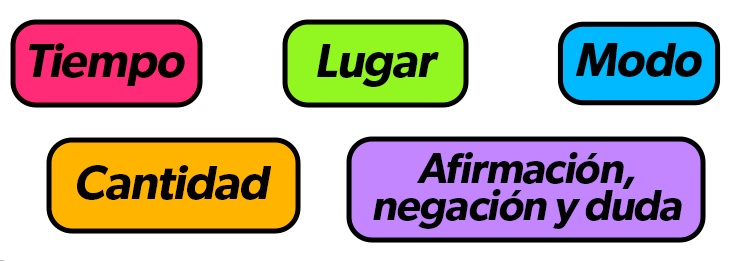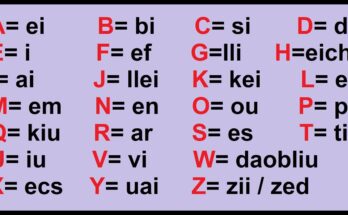Los adverbios son palabras que añaden información adicional a nuestras oraciones y nos ayudan a describir cómo, cuándo, dónde o en qué medida ocurre una acción. Son elementos clave en el idioma, ya que nos permiten ampliar y enriquecer nuestras expresiones.
En este artículo, nos centraremos en los adverbios en inglés, específicamente en los adverbios de lugar, duración, frecuencia y orden. Estos adverbios son fundamentales para proporcionar detalles sobre la ubicación, el tiempo, la frecuencia y la secuencia de los eventos.
A continuación, te presentamos una tabla que incluye una selección de adverbios de lugar, duración, frecuencia y orden en inglés. Encontrarás su significado, pronunciación en español y ejemplos de uso para ayudarte a comprender mejor su aplicación en contextos reales.
¡Explora la tabla y descubre cómo estos adverbios pueden darle vida a tus oraciones en inglés! Recuerda que la pronunciación puede variar según el acento o la región, pero estos ejemplos te brindarán una base sólida para comenzar a utilizarlos.
Tabla de Adverbios en inglés
| Categoría | Adverbio | Significado | Pronunciación en español (aproximada) | Ejemplo |
|---|---|---|---|---|
| Lugar | Here | Aquí | jir | Come here. (Ven aquí.) |
| There | Allí | zér | She is over there. (Ella está allí.) | |
| Above | Encima | abáv | The bird is flying above the trees. | |
| Below | Debajo | bilóu | The keys are below the book. | |
| Near | Cerca | nír | The park is near my house. | |
| Far | Lejos | fár | The beach is far from here. | |
| Inside | Dentro | ínsáid | She is waiting inside the car. | |
| Outside | Fuera | áutsáid | The children are playing outside. | |
| Behind | Detrás | biháind | The cat is hiding behind the couch. | |
| In front of | Delante de | in fránt ov | The school is in front of the park. | |
| Duración | Always | Siempre | ólweis | I always wake up early. |
| Never | Nunca | néver | They never go to parties. | |
| Often | A menudo | ófen | He often goes for a walk. | |
| Frequently | Frecuentemente | fríkwentli | They frequently travel for work. | |
| Rarely | Rara vez | rérli | I rarely eat fast food. | |
| Occasionally | Ocasionalmente | okeiZHnali | We occasionally go to concerts. | |
| Sometimes | A veces | sám-táims | Sometimes I like to relax at home. | |
| Seldom | Raramente | séldom | She seldom goes to the theater. | |
| Usually | Usualmente | iúZuali | I usually drink coffee in the morning. | |
| Frecuencia | Frequently | Frecuentemente | fríkwentli | He frequently checks his emails. |
| Occasionally | Ocasionalmente | okeiZHnali | She occasionally travels for work. | |
| Often | A menudo | ófen | They often go to concerts. | |
| Rarely | Rara vez | rérli | I rarely eat spicy food. | |
| Always | Siempre | ólweis | She always arrives on time. | |
| Never | Nunca | néver | They never miss their appointments. | |
| Sometimes | A veces | sám-táims | Sometimes I go for a run in the morning. | |
| Usually | Usualmente | iúZuali | I usually read before going to bed. | |
| Manner | Carefully | Cuidadosamente | kérfəli | She carefully painted the picture. |
| Quickly | Rápidamente | kwíkli | He quickly finished his homework. | |
| Slowly | Lentamente | slóuli | Walk slowly in the museum. | |
| Quietly | Silenciosamente | kwáiətli | Please speak quietly in the library. | |
| Loudly | Fuertemente | lúdli | The music is playing loudly. | |
| Happily | Felizmente | jápili | They happily danced all night. | |
| Angrily | Enojadamente | ánggrili | He spoke angrily to his boss. | |
| Patiently | Pacientemente | péiSHəntli | Please wait patiently in line. | |
| Carelessly | Descuidadamente | kérləsli | He carelessly left his keys at home. | |
| Polite | Cortésmente | pəláit | She spoke politely to the guests. | |
| Tiempo | Now | Ahora | nau | I am busy now. |
| Then | Entonces | zen | She was tired then. | |
| Yesterday | Ayer | yésdéi | I saw her yesterday. | |
| Tomorrow | Mañana | tumórou | We have a meeting tomorrow. | |
| Soon | Pronto | sún | She will arrive soon. | |
| Late | Tarde | léit | Don’t be late. | |
| Never | Nunca | néver | He never forgets her birthday. | |
| Always | Siempre | ólweis | The sun always rises in the east. | |
| Before | Antes | bifór | Please finish before lunch. | |
| After | Después | áfter | We’ll go for a walk after dinner. | |
| Orden | First | Primero | fərst | He arrived first. |
| Second | Segundo | sékənd | She came in second place. | |
| Third | Tercero | θərd | The third time is the charm. | |
| Last | Último | lɑst | He won the last race. | |
| Next | Próximo | nɛkst | The next train will arrive soon. | |
| Previous | Anterior | pri:vɪəs | Please refer to the previous page. | |
| Final | Final | ˈfaɪnl | This is the final warning. |



